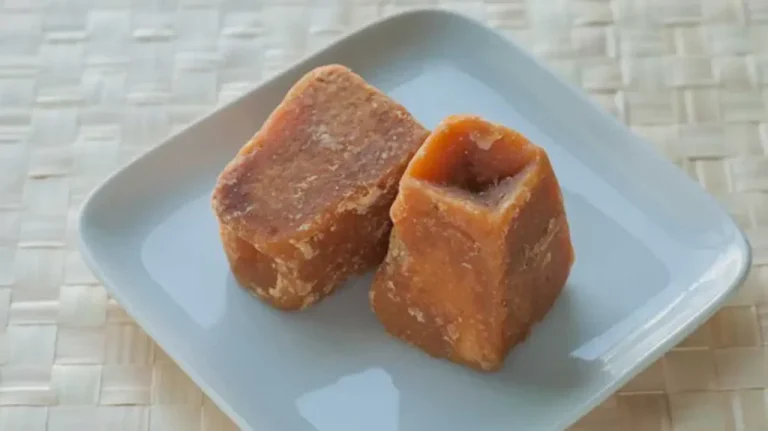
Jaggery, the traditional unrefined sugar made from sugarcane, is not just a sweet treat for humans but also a fantastic natural fertilizer for plants. Moreover, it is rich in essential nutrients and minerals that can improve soil health, boost plant growth, and even combat certain pests. In this blog, the various ways jaggery can nourish your garden will be explored to ensure your plants thrive.
Why Use Jaggery for Plants?
Jaggery contains carbohydrates, iron, magnesium, and potassium, all beneficial for plants. As a result, it offers several advantages:
- Firstly, jaggery improves the soil’s texture and nutrient content, acting as a natural soil conditioner.
- Additionally, the sugar feeds beneficial soil microbes, which enhances their activity and increases soil fertility.
- Furthermore, minerals like iron and potassium aid in the growth and development of plants.
- Lastly, jaggery can support organic pest control methods to protect plants from harmful insects.
Ways to Use Jaggery for Plants
There are several ways to incorporate jaggery into your gardening routine. Below, different methods are described to show how jaggery can benefit your plants:
1. Jaggery Solution as Liquid Fertilizer
A jaggery solution provides plants with a quick nutrient boost.
Ingredients:
- 1-2 tablespoons of jaggery
- 1 liter of water
Instructions:
- Dissolve the jaggery in warm water until it dissolves completely.
- Allow the solution to cool to room temperature.
- Water your plants with this jaggery solution once every 2-3 weeks.
Benefit: As a result, this liquid fertilizer promotes root growth, enhances microbial activity, and improves plant vitality.
2. Jaggery in Composting
Jaggery speeds up decomposition in compost, improving the compost’s quality.
How to Use:
- Add small pieces of jaggery or dissolve jaggery in water and pour it over your compost pile.
- Mix it with other organic materials like kitchen scraps, leaves, and garden waste.
Benefit: Consequently, jaggery feeds microorganisms, turning organic matter into nutrient-rich compost that supports healthy plant growth.
3. Jaggery as a Microbial Booster
In organic farming, jaggery is used to create microbial cultures such as Jeevamrutha, a traditional Indian biofertilizer.
Jeevamrutha Recipe:
- 10 liters of water
- 1 kg of cow dung
- 1 liter of cow urine
- 50 grams of jaggery
- A handful of soil from the root zone of healthy plants
Instructions:
- Combine all ingredients in a container.
- Stir the mixture well and cover it with a cloth.
- Let it ferment for 3-5 days, stirring daily.
- Dilute the fermented mixture with water (1:10 ratio) before using it on plants.
Benefit: Therefore, Jeevamrutha improves soil fertility by introducing beneficial microbes, enhancing plant growth, and boosting plant immunity.
4. Jaggery as an Organic Pesticide
Jaggery can also be combined with other ingredients to create an organic pesticide.
Neem-Jaggery Spray Recipe:
- 100 grams of jaggery
- 200 grams of neem leaves
- 5 liters of water
Instructions:
- Boil the neem leaves until the water reduces by half.
- Strain the liquid and allow it to cool.
- Dissolve jaggery in the neem solution.
- Spray the mixture on plants to repel pests such as aphids, mites, and whiteflies.
Benefit: As a result, neem’s insecticidal properties combined with jaggery’s adhesive qualities create an effective organic pesticide.
5. Jaggery for Seed Germination
Jaggery helps improve seed germination and early growth.
How to Use:
- Dissolve a small piece of jaggery in water and soak seeds for a few hours before planting.
Benefit: As a result, jaggery provides an initial energy boost, ensuring faster and healthier seedling growth.
Conclusion
In conclusion, jaggery is a versatile, natural solution for promoting plant health. By enriching the soil, enhancing microbial activity, and acting as a pest deterrent, it plays a vital role in organic gardening. Thus, incorporating jaggery into your gardening routine will ensure healthier plants while contributing to a sustainable environment. Happy gardening!


